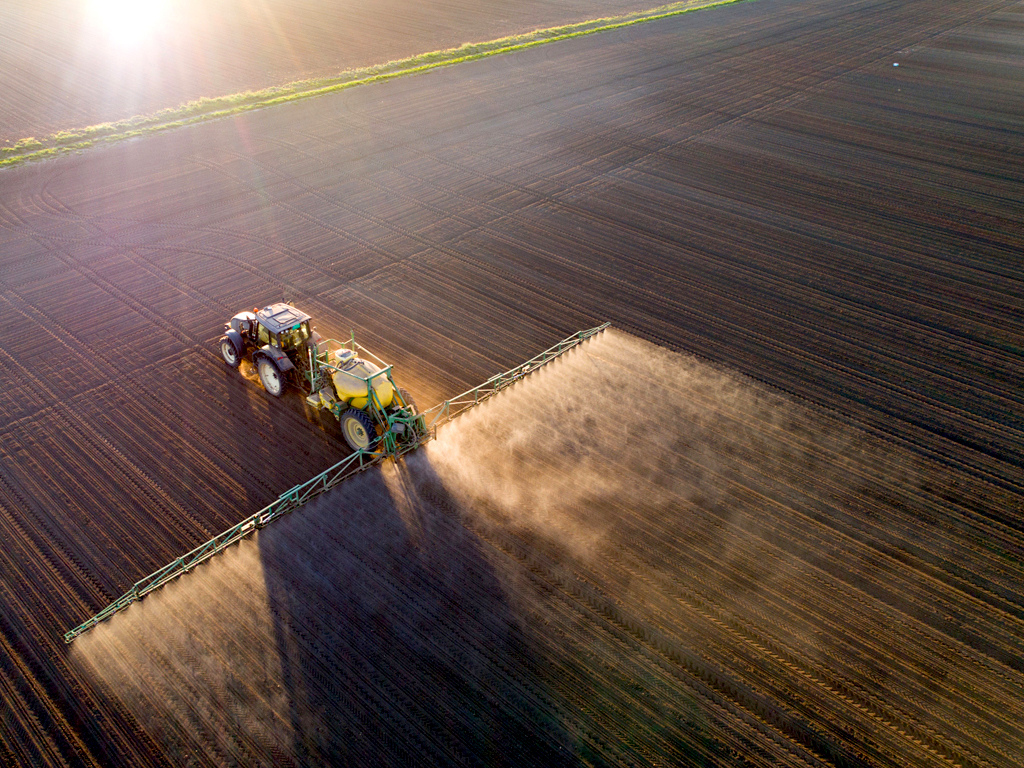3 Mins Read
A new study has highlighted the growing use of nitrogen fertilisers in the production of food and feed for animal livestock as a key driver of rising concentrations of nitrous oxide in the atmosphere, a super potent greenhouse gas. According to the research, the world must urgently adopt more sustainable farming practices and mitigate nitrous oxide emissions or risk jeopardising the hopes of reaching the climate goals outlined under the Paris Agreement.
The study, published in the peer-reviewed journal Nature, finds that the accelerating trend of rising nitrous oxide in the atmosphere is putting our climate targets at risk. Nitrous oxide is a greenhouse gas that remains in the atmosphere for longer than the average human lifetime and is 300 times more potent compared to carbon dioxide.
Conducted by an international team of over 50 scientists from 14 countries and 48 research institutions and led by the Auburn University in Alabama, U.S., the study found that nitrous oxide has grown 20% from pre-industrial levels and the primary driver of this greenhouse gas is the rising use of nitrogen fertilisers in food production and cultivating feed for animal agriculture.
“The dominant driver of the increase in atmospheric nitrous oxide comes from agriculture, and the growing demand for food and feed for animals will further increase global nitrous oxide emissions,” said Hanqin Tian, lead author of the study and director of the International Center for Climate and Global Change Research at Auburn University. “There is a conflict between the way we are feeding people and stabilising the climate.”
The dominant driver of the increase in atmospheric nitrous oxide comes from agriculture, and the growing demand for food and feed for animals will further increase global nitrous oxide emissions.
Hanqin Tian, Director of the International Center for Climate and Global Change Research at Auburn University
Researchers also found that the biggest contributors to this potent greenhouse gas are in East Asia, South Asia, Africa and South America. In particular, synthetic fertiliser use accounts for the bulk of the nitrous oxide emissions in China, India and the U.S., while the use of livestock manure as fertiliser is the main source in Africa and South America.
The countries where the growth trend is accelerating the fastest is in emerging economies, predominantly in Brazil, China and India, where livestock and crop production has increased significantly.
Unless urgent action is taken to curb nitrous oxide emissions, there is little hope that the world will be able to meet its climate goals, the authors say. “Current emissions are tracking global temperature increases above 3°C, twice the temperature target of the Paris Agreement,” said study co-author Robert Jackson, Stanford University professor and chair of the Global Carbon Project.
This new analysis calls for a full-scale rethink in the ways we use and abuse nitrogen fertilisers globally and urges us to adopt more sustainable practices in the way we produce food, including the reduction of food waste.
Josep Canadell, Executive Director of the Global Carbon Project
There are key opportunities that lie ahead for the world to reduce nitrous oxide emissions, the study highlighted, which include implementing regulations to promote sustainable farming practices and the reduction of fertiliser use. Slashing food waste will also play an important role to minimise resource loss and sustainable consumption and production.
“Industrial and agricultural policies to reduce greenhouse gases and air pollution and to optimize fertiliser use efficiencies have proven to be effective,” said Wilfried Winiwarter, senior research scholar at the International Institute for Applied Systems Analysis (IIASA) and co-author of the study.
“This new analysis calls for a full-scale rethink in the ways we use and abuse nitrogen fertilisers globally and urges us to adopt more sustainable practices in the way we produce food, including the reduction of food waste,” added Josep Canadell, study co-lead and executive director of the Global Carbon Project. “These findings underscore the urgency and opportunities to mitigate nitrous oxide emissions worldwide to avoid the worst of climate impacts.”
Lead image courtesy of Jetvic / Getty Images / iStock.




